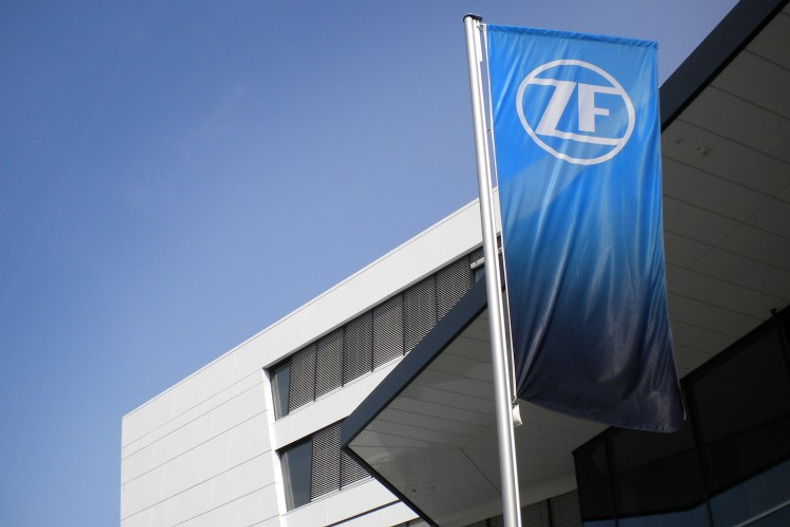Technology company achieves annual targets and increases competitiveness

The technology company ZF Friedrichshafen AG has achieved its financial targets set for 2023. In the midst of a highly volatile global economy, the company increased its sales by 6.5 percent to €46.6 billion (2022: €43.8 billion).
Adjusted EBIT amounted to €2.4 billion (2022: €2.0 billion); the adjusted EBIT margin was 5.1 percent (2022: 4.7 percent). Based on a positive development of free cash flow in the second half of the year, ZF has repaid liabilities of around €2 billion and reduced net debt by €400 million to below €10 billion.
“2023 was a year of wide-ranging decisions for ZF: We have realigned the company’s transformation course and focused on competitiveness and profitability,” said ZF’s CEO Dr. Holger Klein when presenting the balance sheet in Friedrichshafen recently. “Thanks to the great commitment of the entire ZF team, we have achieved our financial targets. We will now continue on this path. 2024 will be a year of implementation and we will set the course for more focus, efficiency and competitiveness.”
As Klein mentioned, some important decisions were made in 2023. One of them was the preparation of the merger between the Car Chassis Technology Division and the Active Safety Systems Division into the new Chassis Solutions Division, which took place in January of this year.
Additionally, the carve-out of the Passive Safety Systems Division was started. “The Passive Safety Systems Division carve-out is progressing well,” Klein said. “We are looking into options for its future development, which could include a complete or partial sale or an IPO.” Another major step was the founding of a joint venture for passenger car chassis systems, ZF Chassis Modules GmbH, with Foxconn, the world’s largest electronics manufacturer.
The decision to refrain from building autonomous shuttles and instead focus as a premium supplier of autonomous driving technologies and engineering services was also groundbreaking for the Group’s long-term orientation.
“This kind of decision enables ZF to act from a sound position and continue to implement its strategy,” explained Klein. “Our widespread portfolio allows us to specifically invest in profitable growth areas and electric mobility – depending on customer demand – to supply products for all-electric, hybrid and conventional drives.”
To become more competitive worldwide and respond to weak markets, ZF will use performance programmes and focus even more strongly on improving its cost situation and structures.
By the end of 2025, the cost basis is to be reduced Group-wide by €6 billion. Five core areas will contribute their measures to this target.
They include the generation of price effects in material purchasing, increasing productivity, and improving research and development costs as well as the cost structure in the corporate functions and a detailed review of investments for their targeted use.
“This leaner cost base will give us a position of strength to address the further transformation towards electric mobility in the second half of this decade and beyond,” Klein said.
In the 2023 fiscal year, ZF repaid liabilities totaling approximately €2 billion. “Our priority is to systematically tackle debt reduction and refinancing,” emphasized chief financial officer Michael Frick.
Based on the ZF Green Finance Framework, three bond issues were made: In February 2023, ZF issued a fixed-interest green euro bond in the amount of €650 million under the Debt Issuance Program (DIP).
In April 2023, ZF successfully re-entered the US bond market with a volume of $1.2 billion. Another green euro bond was placed on the market in September 2023 with a fixed-interest individual tranche of €650 million.
“These issues were all in great demand. Markets continue to believe in ZF and our power to manage the transformation,” Frick said.
“We have already drawn on these successful issues this year to ensure a stable and long-term orientation of our maturity profile, even under changed financial market conditions.”
A green bond placed on the market at the end of January with a volume of €800 million (five-year term, coupon 4.75 percent) was eight times oversubscribed.
Klein confirmed ZF’s plan to make global investments in the future of almost €18 billion by the end of 2026. Of this, approximately €10.6 billion is to be spent on research and development and more than €7 billion is to be invested in property, plant and equipment.
With increased competitiveness, the German ZF locations are to receive up to 30 percent of these investments.
Klein explained this in the context of the ongoing performance programs: “We see the many advantages of Germany as a location, but we are aware of its disadvantages in international competition. We want to work on these in a targeted manner with our performance programs. To be back in pole position, ZF is moving forward with initiative, innovative strength and the will to succeed. We are prepared to invest heavily in Germany if the general conditions are opportune and we improve our cost base here.”
